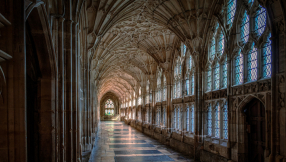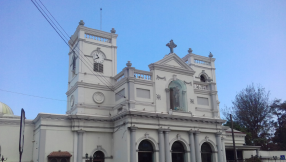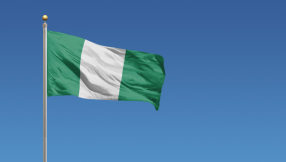It's a day many of us hoped and prayed would never happen. On Friday at 12pm, reality-TV-personality-turned-politician Donald Trump will be sworn in as the 45th President of the United States, the most powerful position in the world.
From his insulting language towards Mexicans and Muslims, to the disgraceful mocking of a disabled reporter, to boasts about groping women, it will be hard moment for me to swallow.
In all honesty, I'd rather pretend this isn't happening. But swallow it I must. Trump galvanised a huge swathe of disaffected Americans, highlighting divisions and tensions which already existed. If I am going to resist his rhetoric, I need to sit up and pay attention to the story which has made him, and question my own role within it. Like the night watchman, now is not the time to sleep.
Protests before, during and after the inauguration are planned in Washington, all over the US and around the globe. As well as the much-anticipated women's-led march on Saturday, on the day of the inauguration #bridgesnotwalls are inviting people to drop banners from bridges reflecting this key message: "We will build bridges, not walls, to a peaceful and just world rid of oppression and hatred."
It will be a global action inspired by the words of Pope Francis himself who controversially said of Trump: "A person who thinks only about building walls... and not of building bridges, is not Christian. This is not the gospel."
I love the prophetic image and the symbolism of standing on a bridge, but if I want to live each day as an act of resistance against growing division and disunity, what will it look like?
I recently listened to a deeply challenging podcast with social psychologist and theologian, Christena Cleveland. She argues that ethnic, socio-economic, cultural and theological divides are rife in the Church, and each of us must look to which prejudices and assumptions exist in our own interpretation of faith.
"The way I understand God as relational at heart requires that I must move towards [those I am different to and even those I disagree with] with a posture of 'there's something that they have to teach me that I actually need'...
"This changes everything. We start to say: "We can't be us, we can't have a full understanding of God, we can't have a full understanding of ourselves, unless different people who bring those different perspectives are interconnected to us.'"
In essence Cleveland believes that without being in relationship to those different from us, we will always be missing something of the character of God which is uniquely reflected in who they are.
Jesus spent his time with people who were nothing like him. He entered their homes to see how they lived and learned to speak their kind of language. Whether it's because of fear, circumstance or comfort, we often still find or place ourselves in situations with those who are similar to us. Yet, the more we gather with like-minded folk who look, talk and move in the world in a way familiar to us, the more divided we will become. The more our social media newsfeeds are filled with people who reinforce our limited worldview, the more we will be surprised when others post 'something like that'.
We are effectively building invisible walls around ourselves; and the worst of it is, most of the time we don't even see them.
Until we break down these walls, and also choose to bravely walk through those which others defensively surround themselves with, we will fail to encounter the richness of the Kingdom.
Cleveland states that as the Holy Spirit arrived, when those first followers were suddenly able to speak and understand all kinds of different languages, God was physically and tangibly expanding our 'understanding of what it means to be us.'
Us and them: it's an uncomfortable phrase I'd like to disassociate myself from being part of creating – but in learning to resist division, I need to ask myself some tough questions and not be afraid of the answers which arise: Where do I see myself as superior to others? And why? I have to think in terms of class, education, income, housing, marital status, church denomination, theological position, gender, race and ethnicity. Who do I dismiss before I've spent time listening and talking to them? Where can I go to meet with people totally unlike me?
It feels tougher than I might have imagined, and it could take me a lifetime to work through, but I don't want to risk missing out on something of who God is by playing it safe in my comfortable social circles.
As I grapple with this challenge, the words of this Gungor song are encouraging me to intercede and prophesy in the coming days for the freedom of us all. Freedom from the clutches of labels, divisions, and positions. Freedom from the need to confine others to their background, job status or income levels. Freedom to walk through invisible walls and step into the beautiful diversity of the Kingdom.
"As we lay our hate down
And wash their feet
As we see our brother
I know we'll all be free
I know that we'll be free
So let the light in
Keep it shining
Let it break into the darkness
All the love dares us to see
We'll all be free."













